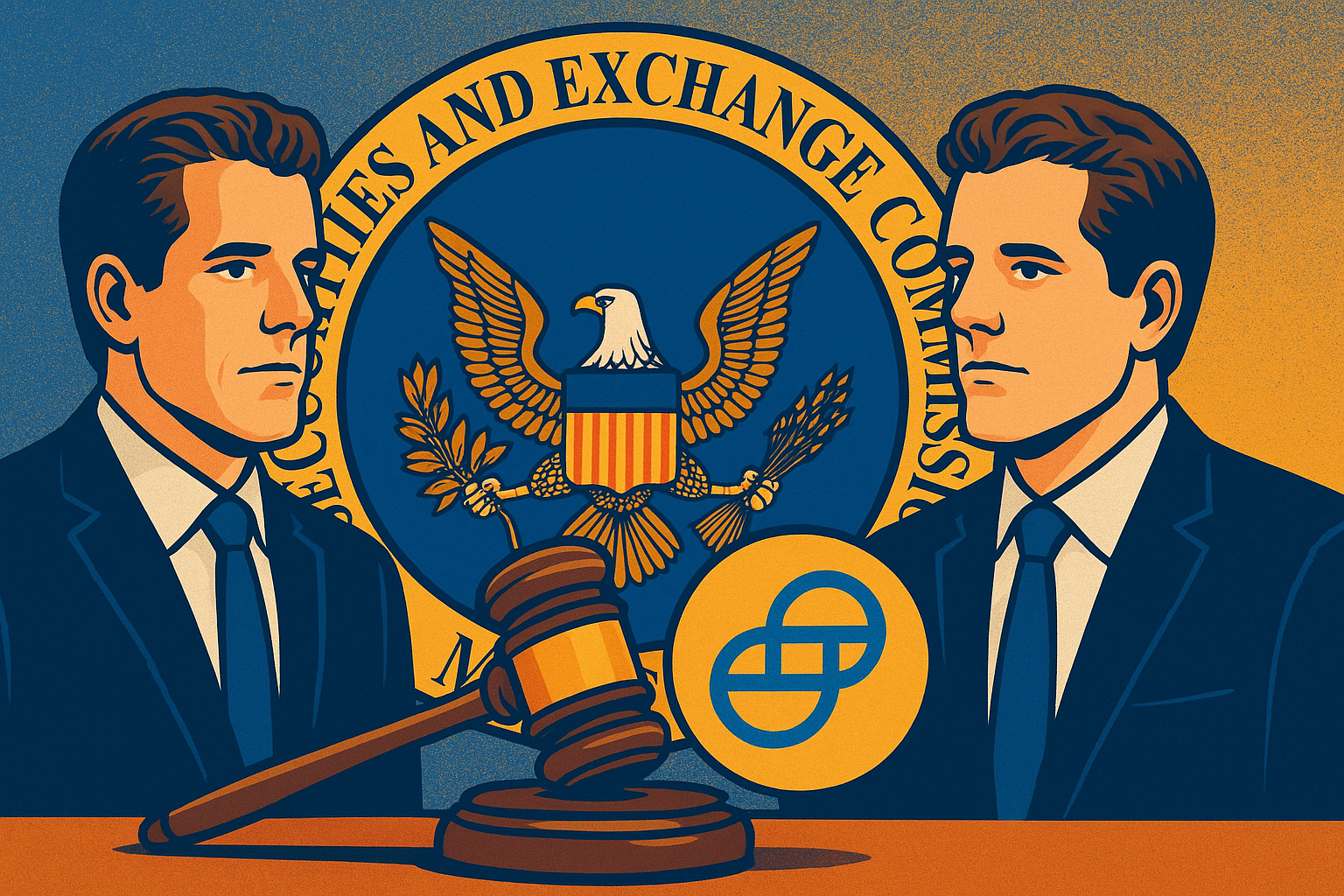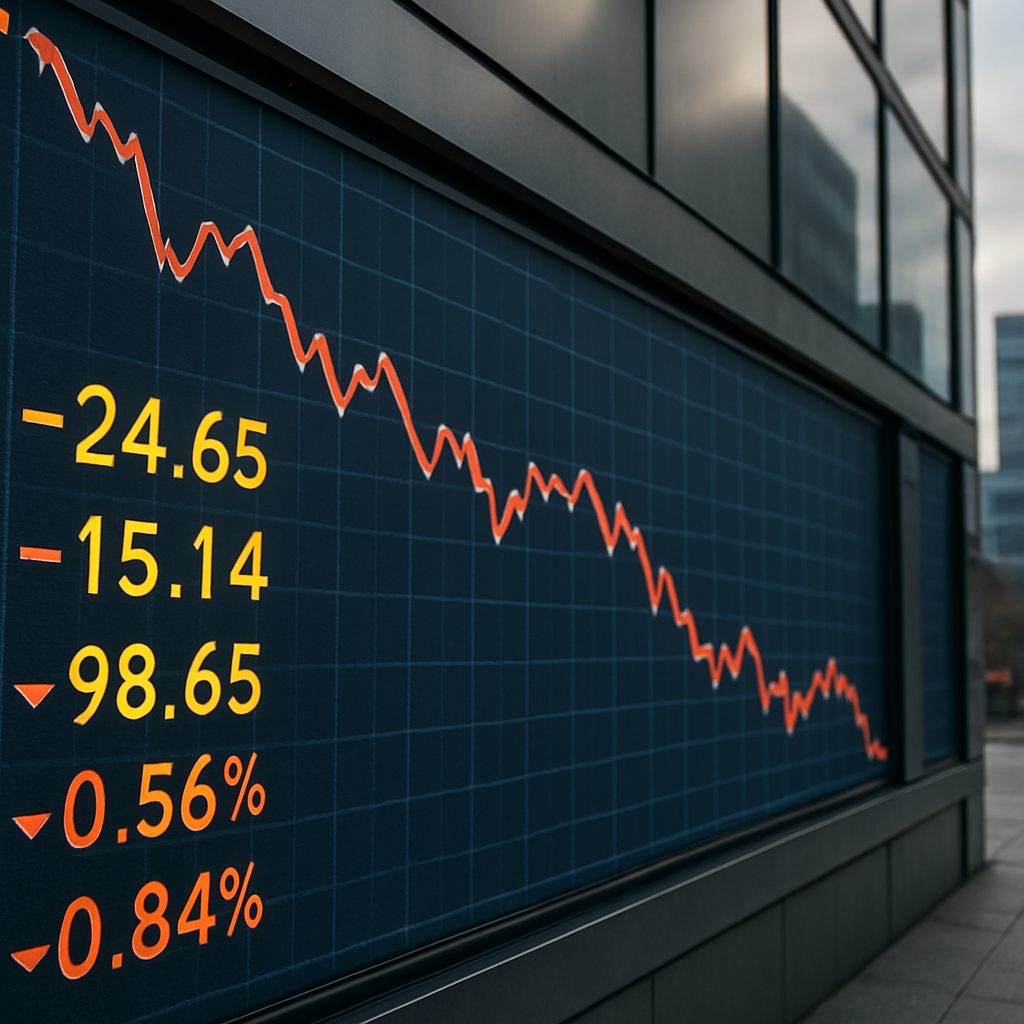Crypto regulation is once again in the spotlight as the U.S. Securities and Exchange Commission (SEC) announced a settlement with Tyler and Cameron Winklevoss over Gemini’s “Earn” program. The case centered on whether Gemini’s interest-bearing crypto-asset lending product constituted an unregistered securities offering to retail investors. While the settlement still requires formal approval, it brings closure to one of the higher-profile enforcement battles between regulators and major crypto entrepreneurs.
Regulatory pressure reshapes the crypto landscape
The settlement comes at a time when regulators worldwide are tightening their grip on crypto lending and yield-generation platforms. The Gemini Earn program, which allowed retail investors to earn interest on deposited digital assets, had drawn scrutiny since 2022 after the collapse of several lending platforms exposed systemic risks in the industry.
According to Reuters (Sept. 15–16, 2025), the SEC alleged that Gemini failed to properly register the product, putting investors at risk without sufficient disclosures. The Winklevoss twins, founders of Gemini, had fought the case for months but ultimately agreed to settle, signaling a pragmatic end to litigation that had threatened to drag on for years.
Why this matters for investors
For investors, the case underscores the shifting risk profile of crypto platforms offering yield products. Enforcement actions against BlockFi, Celsius, and now Gemini highlight a common thread: regulators are unwilling to allow retail-facing lending products to operate outside securities law frameworks.
- Compliance costs rising: Platforms will need to either register products or redesign them to avoid classification as securities. That means higher legal, compliance, and operational costs for firms in this space.
- Investor protections prioritized: The SEC’s actions reflect a broader push to protect retail investors from opaque risk-taking in crypto lending. That shift could reduce short-term returns but improve industry stability.
- Competitive dynamics: Firms with stronger compliance frameworks may gain an edge. Coinbase, for example, has emphasized regulatory engagement, while offshore platforms risk losing U.S. market access.
Future trends to watch
- U.S. policy direction: With the 2025 U.S. elections elevating debates over crypto regulation, expect continued political and legal battles shaping the industry’s future.
- Yield product redesigns: More platforms are expected to pivot toward staking, tokenized securities, or fully registered yield programs to remain competitive.
- Investor sentiment: Institutional interest in regulated crypto offerings is rising, but retail demand could shift away from high-yield programs toward safer, transparent vehicles.
Broader implications for crypto markets
While the Gemini settlement removes a lingering legal overhang, it also reinforces the message that crypto remains in regulators’ crosshairs. This may dampen speculative demand for lending tokens but could strengthen the case for regulated spot ETFs, tokenized bonds, and other compliant vehicles that bridge traditional finance and digital assets.
The settlement also reflects the maturing of the crypto market: early “wild west” products are giving way to structures that must meet institutional-grade compliance standards. For investors, that means the focus should shift from chasing yield to evaluating platforms based on governance, transparency, and regulatory alignment.
Key investment insight
Investors should approach crypto lending and yield platforms with caution, factoring in compliance risks and the likelihood of higher operating costs. Companies that proactively embrace regulation may offer more sustainable long-term returns, while platforms resisting oversight face heightened legal and reputational risk.
As regulatory enforcement accelerates, the winners in crypto will likely be those who can balance innovation with compliance, positioning themselves as trusted bridges between digital assets and mainstream finance.
Stay with MoneyNews.Today for the latest investor insights into crypto, regulation, and global markets.





